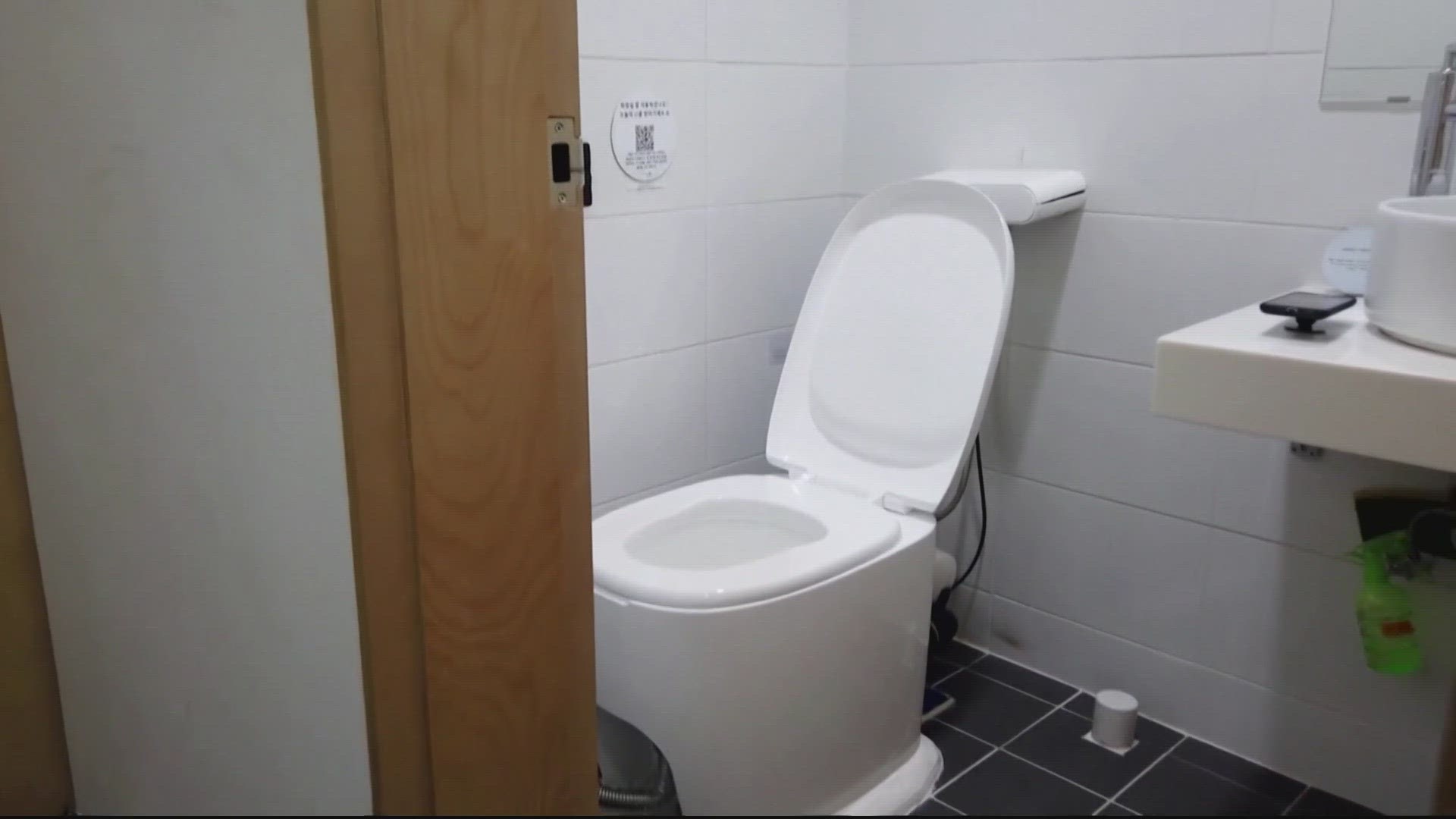WASHINGTON — Construction is almost complete on the new Bioenergy Facility at WSSC Water's Piscataway Water Resource Recovery Facility in Accokeek, Maryland.
Once the final stages of construction are done, your number two will be turned into a number one fuel referred to as “renewable natural gas” that will then be used to power Montgomery County’s Ride On bus fleet.
"I think people would be surprised to understand that when they flush their toilet they're actually going to be generating energy," explains Brian Mosby, the Biosolids Division Manager at WSSC Water.
The Accokeek facility might have a bit of a stench to it, but the work they're doing definitely does not stink.
“Biosolids are typically referred to as a waste product," said Mosby. "It’s what we remove from the waste water to clean it. And typically we would take that to a landfill, but now we see that product as a resource.”
Methane gas is captured and upgraded to renewable energy through a process similar to our human digestion.
Mosby said, "We’re going to take that sludge and put it into a thermal hydrolysis process and you can consider that like a pressure cooker, it breaks down the cell walls and is easier to digest just like in your stomach.”
WSSC Water and Montgomery County recently entered a five-year agreement for the sale of the renewable natural gas. County Executive Marc Elrich said in a statement, "This agreement to turn methane gas into fuel for our buses is a win-win-win for our constituents, commuters and most importantly, our environment."
The expected improvements toward efficiency and reliability of the Ride-On bus system is crucial toward Montgomery County's goal of a 100% carbon emission reduction by 2035.
The completion of the Bioenergy Facility will also create a number of green jobs in the community and become the first production from WSSC Water that generates revenue. The deal for the Piscataway Bioenergy Project is forecast to generate an estimated $700,000 per year in revenue for WSSC Water. And a reduced production cost could mean good news for customers.
"I think it's going to be a large industry, I think this is the beginning," says Mosby. "This is a resource, it's here, we're able to use it, why not keep it going."
The Piscataway Bioenergy Facility is expected to be completed and operational by next November.

